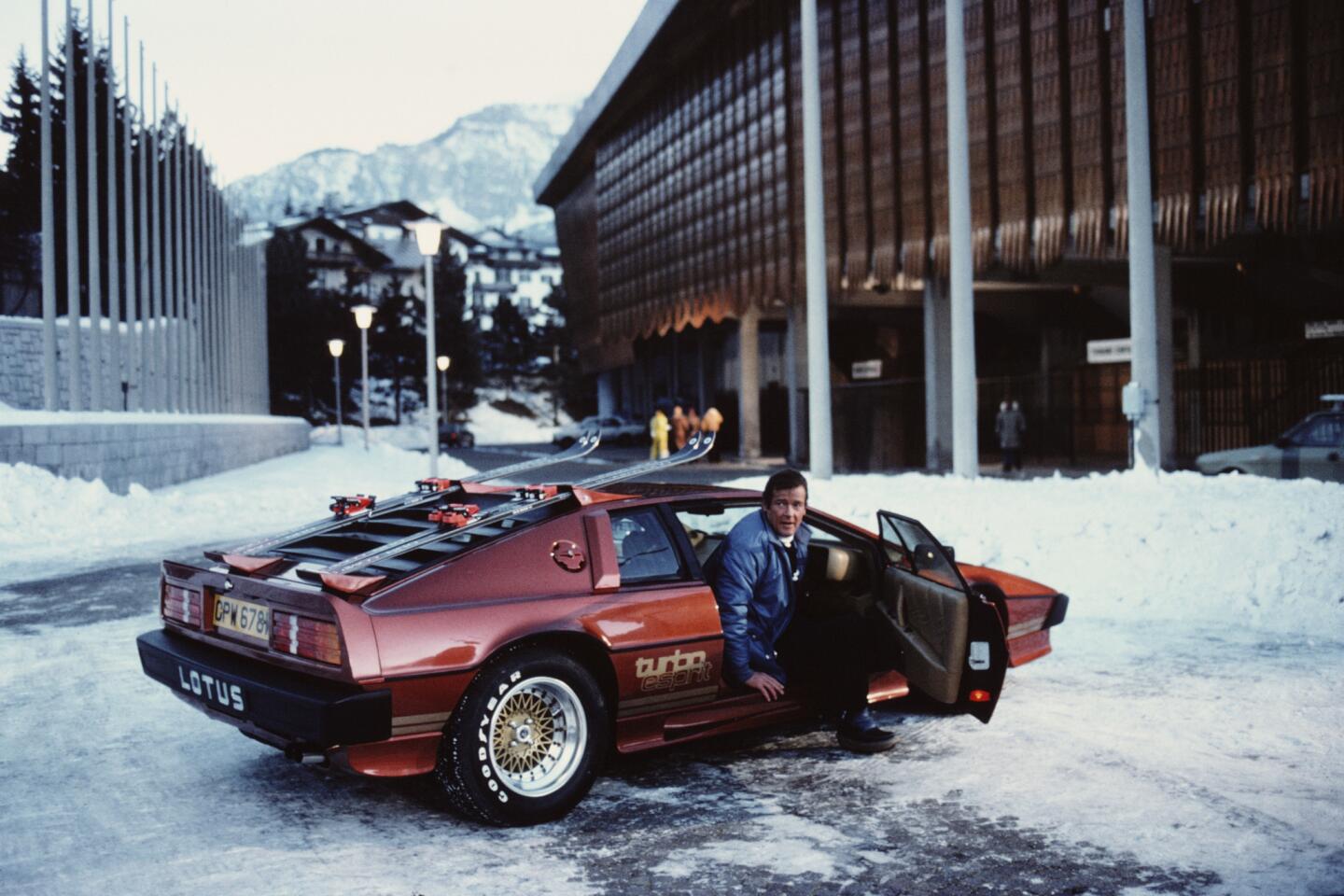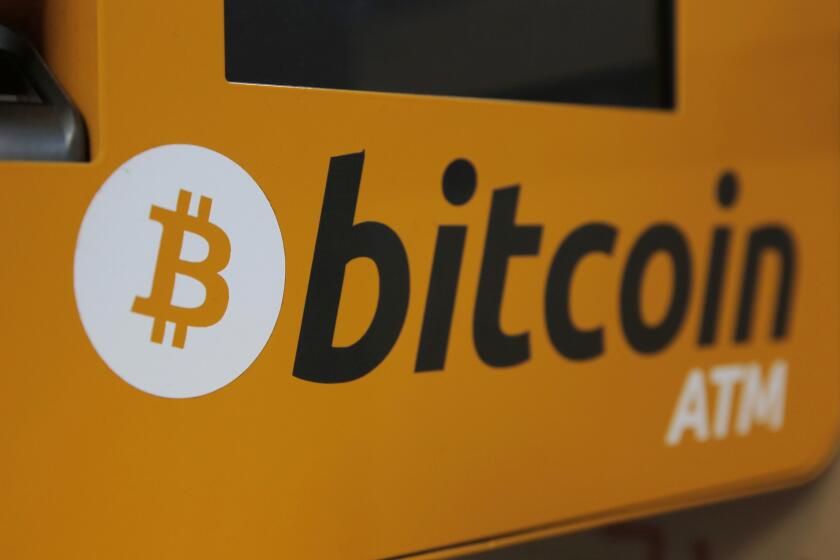Advertisers make $900-million bet on Olympic Winter Games
The lighting of the Olympic flame in Russia will launch a nearly $900-million bet by U.S. advertisers that this year’s Winter Games will become a feel-good event for television audiences.
Leading up to Friday’s official opening of the XXII Olympic Winter Games, most of the attention has centered on difficulties — and not the athletes.
The Sochi athletic competitions will be unfolding against a backdrop of threats of terrorist attacks, allegations of corruption, tense U.S.-Russia relations and protests over Russia’s controversial anti-gay laws.
PHOTOS: Winter Olympics in film
Still, U.S. advertisers have been undeterred. No major advertiser has canceled its order for commercial time during NBCUniversal’s unprecedented 1,539 hours of coverage of the Games.
In fact, marketing experts said the controversies could help pique viewers’ interest, which in turn should drive TV ratings — at least during the initial days.
“There is an intrigue surrounding the Games and where they are occurring in Russia,” Sam Sussman, a senior vice president of Chicago-based Starcom USA, which plans ad campaigns for Kellogg’s, Best Buy and Hallmark among others. “When there are additional story lines, it helps to drive viewership.”
Much is on the line for NBCUniversal and its parent company, Comcast Corp., which more than two years ago agreed to pay $4.38 billion to lock up the U.S. rights to the Olympics through 2020.
For the Sochi Winter Olympics, NBCUniversal is shelling out $775 million for U.S. media rights. The company expects to spend at least $100 million more to produce the 17-day extravaganza — a price tag that includes the cost of sending 2,300 staff members to Russia to provide coverage of the Games as well as efforts to keep them secure.
“The controversies surrounding the Olympics have been documented for a long time and advertisers knew what they were getting into,” said Dan Cohn, client director for the ad-buying firm Initiative, which represents Miller/Coors, Hyundai and USAA Financial. “Still, the Olympics continue to be a great platform to get your messages across during those 17 days.”
The unpredictable nature of the Olympics is another selling point. “That’s the great thing about the Olympics: You don’t know what the story lines will be or what athletes will become stars until after the Games begin,” Cohn said.
NBCUniversal has said its coverage will be profitable, largely because of advertiser enthusiasm.
“Our ad sales are at an all-time record for Winter Games,” Comcast Chief Executive Brian Roberts said on an earnings conference call with analysts last week.
That is a welcome change for NBCUniversal, which lost $223 million on its investment in the 2010 Vancouver Olympics. Despite a picturesque and friendly venue and a time zone compatible with the western half of the U.S., the Vancouver Games unfolded during a dip in ad spending after the Great Recession.
GRAPHIC: Faces to watch 2014 | Entertainment
The advertising picture has improved dramatically since then.
“NBC is benefiting from a healthy marketplace and the value of sports programming, which is typically live viewing,” Sussman said. “They secured most of their media deals well in advance of the Games, and advertisers continue to be very optimistic.”
In the last few years, audience levels for live events, including sports and award shows, have skyrocketed because viewers don’t want to miss being part of the conversation on social media and in the workplace. The increased viewership has prompted advertisers to open their wallets wider to buy spots in sports, where they can be guaranteed that fewer people will use digital recorders to fast-forward through their commercials.
NBCUniversal has cleared the decks to make room for plenty of commercial time. The company is providing 80% more hours of coverage compared with Vancouver, which notched 835 hours.
NBCUniversal has marshaled its key properties, including the NBC broadcast network (scheduled to air an estimated 185 hours) and cable channels NBC Sports Network, USA Network, MSNBC and CNBC.
CRITICS’ PICKS: What to watch, where to go, what to eat
To satisfy the most dedicated fans, more than 1,000 hours of live coverage will be provided on NBCOlympics.com.
“Our ability to use all of our platforms allows us to be less reliant on any one platform,” NBC Sports Group Chairman Mark Lazarus said this week from the Olympics venue in Adler, Russia, where much of the action is scheduled to unfold. “Our prime-time coverage on NBC is still critically important to us, but we also have very high expectations for our performance in daytime.”
The time zone difference poses one of the biggest challenges. Sochi is nine hours ahead of the East Coast and 12 hours ahead of California. Because so many TV viewers no longer want to wait until prime time to catch the action, NBC this year will dispatch marquee announcers, including Al Michaels and Dan Patrick, during its daytime broadcasts.
NBC began its prime-time coverage Thursday night with trials of several new Olympic events. Historically, the network has achieved higher ratings when the time zone difference with the U.S. is not a big factor — and when American athletes give strong performances and win scores of medals.
“We have great confidence in the American team, and confidence that some international athletes will become stars and American audiences will fall in love with them too,” Lazarus said. “Our great hope is that the athletes and their performances will be allowed to shine. If that happens, then the Olympics will be a big success.”
More to Read
Inside the business of entertainment
The Wide Shot brings you news, analysis and insights on everything from streaming wars to production — and what it all means for the future.
You may occasionally receive promotional content from the Los Angeles Times.












